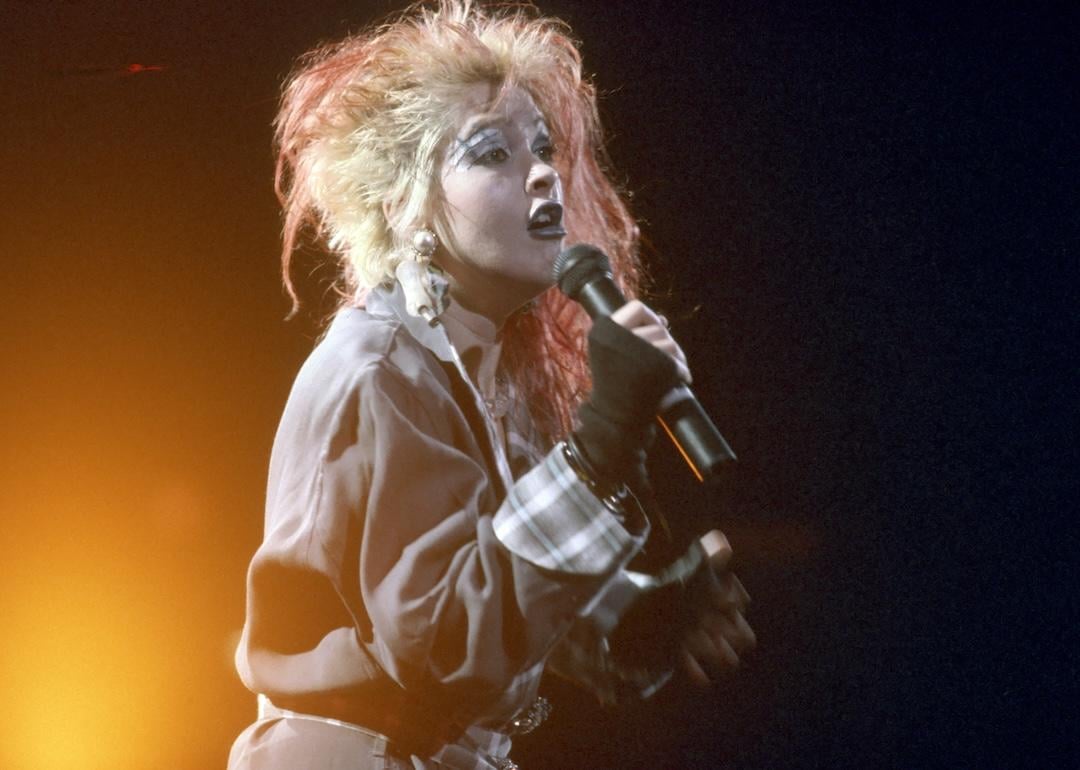
25 most covered rock songs of all time
When it first emerged in the middle of the 20th century, rock music was a kind of musical vernacular that enabled artists to escape their humble backgrounds and make it to the big time. Influenced by country music, rhythm and blues, and Black culture, rock 'n' roll encompassed various musical palettes, but its attitude was distinctly riotous and self-mythologizing.
Radio disc jockeys began playing early genre pioneers, including Elvis Presley, on their shows in the early 1950s. They introduced a predominantly white demographic to a sound more electrifying than anything they had likely heard. Soon, the genre would become the soundtrack of an emerging youth culture, a movement built on music, fashion, and self-expression.
Rock in the 1950s set many of the standards for music today. Still, one band, inspired by skiffle (a sound originating in the United Kingdom that blended jazz, blues, folk, and country music) and pop music, arguably entrenched the template more than any other: the Beatles. Formed by four Liverpudlians in 1960, the Beatles became the bestselling band of all time and crucial innovators of both the stage and studio. Had they never existed, the music we listen to and enjoy today—no matter the genre—would likely sound entirely different.
It's no surprise that the Beatles' songs are some of the most commonly covered. But the Fab Four aren't alone—newer bands like Radiohead are covered just as frequently. Pop singer Billie Eilish, who has previously cited Radiohead as a musical inspiration, performed her own version of the group's iconic 1992 track "Creep" while on tour in Europe in May 2025. John Lennon's son, Julian, has also won over audiences with a Radiohead cover, impressing TikTok listeners in August 2025 with a clip of his 2020 rendition of "Karma Police." Other artists turn to '80s music for inspiration, like the Foo Fighters, who released a cover of Minor Threat's 1981 song "I Don't Wanna Hear It" in June 2025.
To see which rock songs are the most popular choices for covers, Stacker looked at data on all songs with recorded covers from SecondHandSongs and ranked the top 25 songs that we categorized as fitting in the rock genre. The ranking is based on the number of covers.
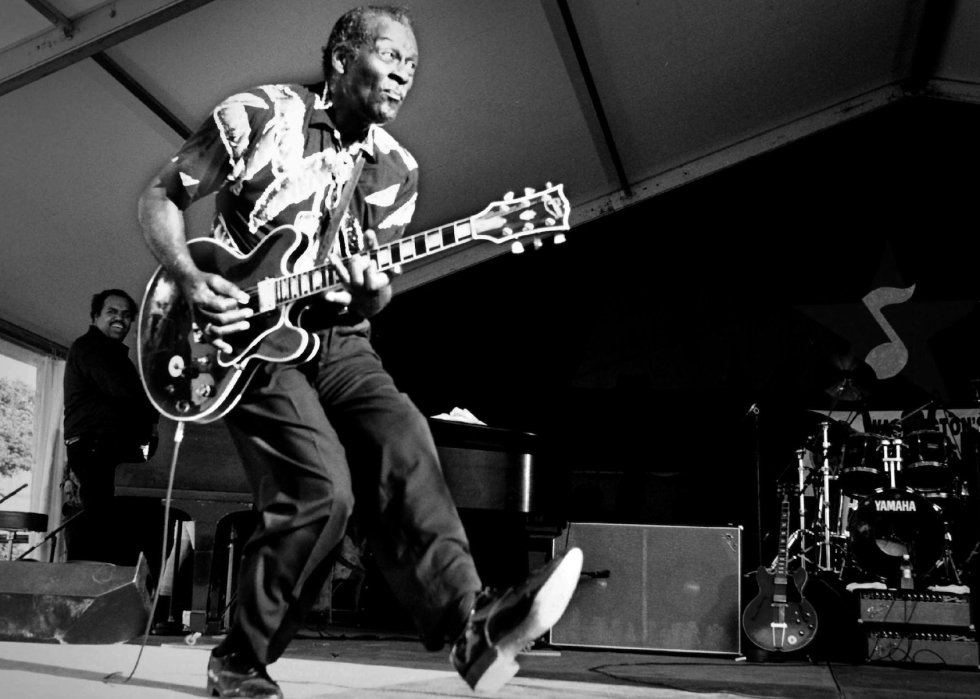
#25. Johnny B. Goode
- Originally recorded by: Chuck Berry
- Written by: Chuck Berry
- Covers: 293
- Adaptations: 30
Released in March 1958, Chuck Berry's "Johnny B. Goode" is commonly considered the first self-congratulatory song in pop music history. Before its recording, Berry had served three years in prison prior to embarking on a career as a guitarist and songwriter. "Johnny B. Goode" is essentially a tribute to his emancipation from poverty and prison.
With its dynamic narrative and rousing melody line, it's no wonder it's been covered by rock 'n' roll legends like Elvis Presley, Jimi Hendrix, and the Beatles. The song is so essential that, in 1977, it was included on a golden disc carried by the NASA spacecraft Voyager as part of a series of music, images, and sounds that could represent life on Earth.
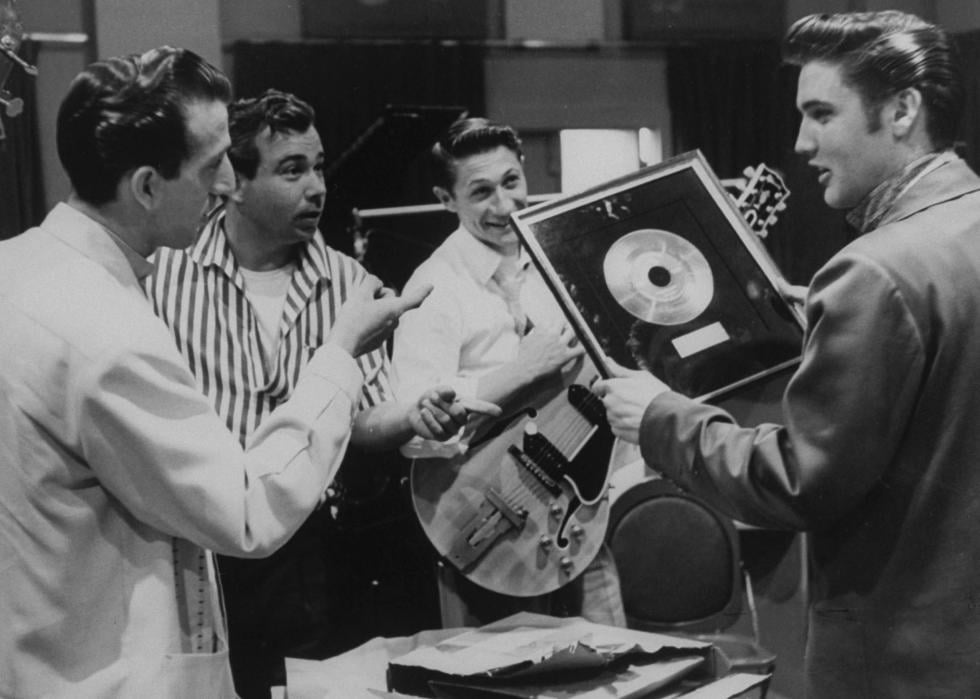
#24. Heartbreak Hotel
- Originally recorded by: Elvis Presley
- Written by: Elvis Presley, Mae Boren Axton, Tommy Durden
- Covers: 293
- Adaptations: 18
Written by Mae Boren Axton and steel guitar player Tommy Durden, "Heartbreak Hotel" gave The King his first #1 hit and became 1956's bestselling single. According to Rolling Stone, the song was inspired by a suicide note, which the writers found in a newspaper article. Despite the morbid backstory, the song has become a staple of rock music history, inspiring covers from the King of the Blue Guitar, Albert King, as well as John Cale and Paul McCartney.
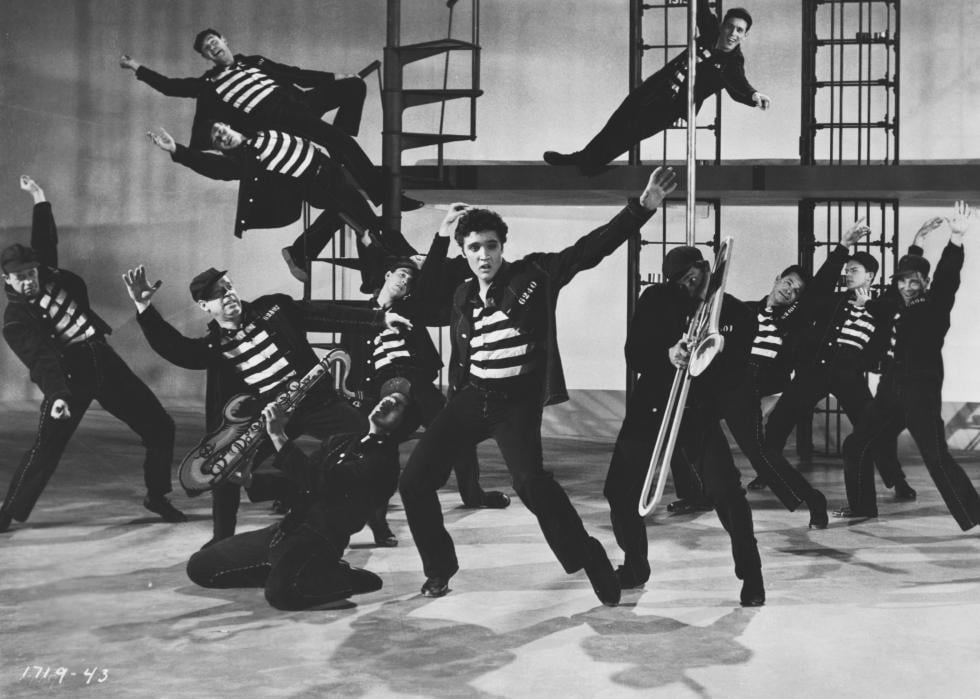
#23. Jailhouse Rock
- Originally recorded by: Elvis Presley
- Written by: Jerry Leiber, Mike Stoller
- Covers: 297
- Adaptations: 19
Another Elvis Presley entry, "Jailhouse Rock," became a megahit the year after "Heartbreak Hotel." "Jailhouse Rock" went on to become the title track for Presley's film of the same name.
Today, it's considered one of the King's best-known signature songs, which is saying a lot. In the song's lifetime, it's been covered by such titans of rock 'n' roll including Queen, The Blues Brothers, and ZZ Top.
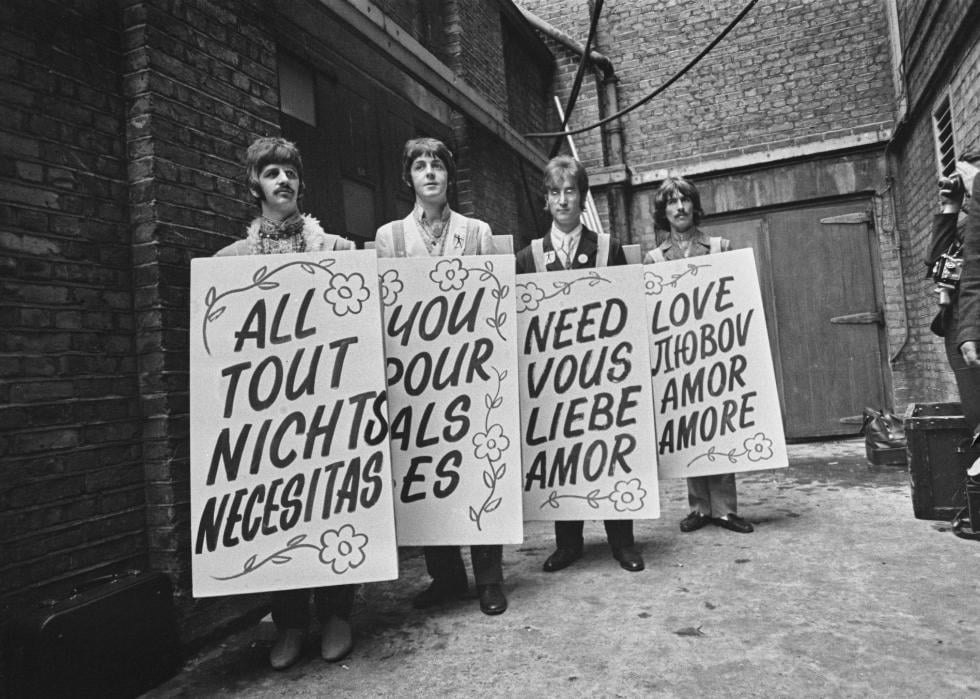
#22. All My Loving
- Originally recorded by: The Beatles
- Written by: John Lennon, Paul McCartney
- Covers: 305
- Adaptations: 14
The first entry of many Beatles entries, "All My Loving" is considered by many Paul McCartney's first major song for the band. According to McCartney's 1997 autobiography, "Many Years From Now," he wrote "All My Loving" during the Beatles' tour with Roy Orbison in 1963. For McCartney, it was the first song where the words came first before the accompaniment.
While John Lennon was considered the band's main songwriter in the Beatles' early days, "All My Loving" asserted McCartney's talent and put the two band members on equal footing. The Arctic Monkeys covered the track when they headlined Madison Square Garden in 2014.
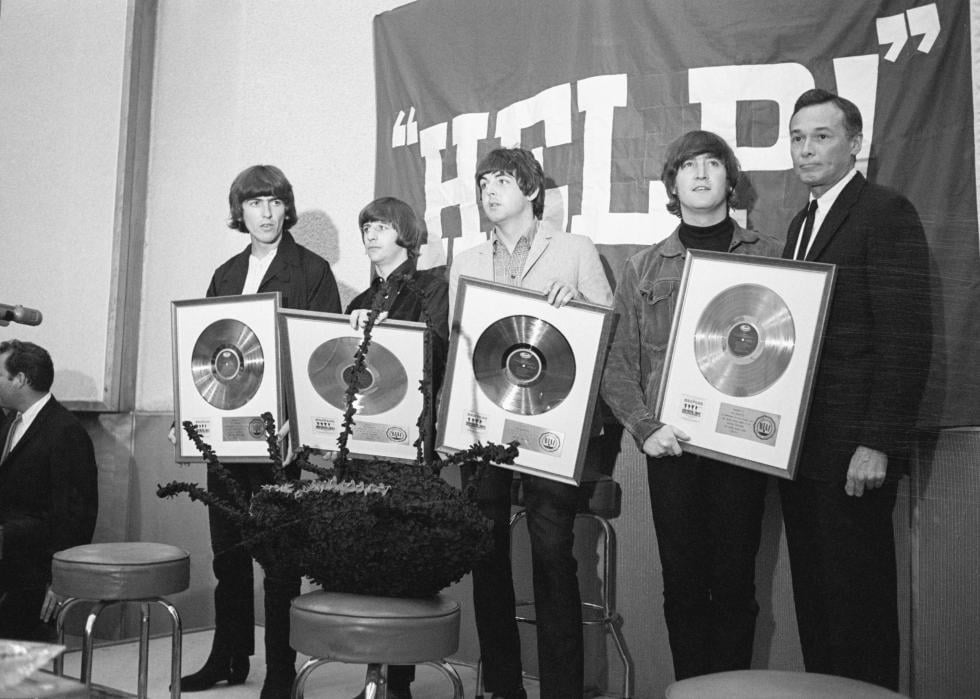
#21. Help!
- Originally recorded by: The Beatles
- Written by: John Lennon, Paul McCartney
- Covers: 306
- Adaptations: 16
Mostly written by John Lennon from his home in Weybridge, "Help!" became the title track for the Beatles' second film and fifth album.
According to David Sheff's 2020 biography of Lennon, "All We Are Saying," the songwriter originally composed the song as a genuine cry for help. That cry was answered over and over by numerous other artists throughout the decade, who reinterpreted Lennon's desperation into their own sound.
In 1968, Deep Purple provided their own psychedelic take, and two years later, the Carpenters brought the song into their universe.
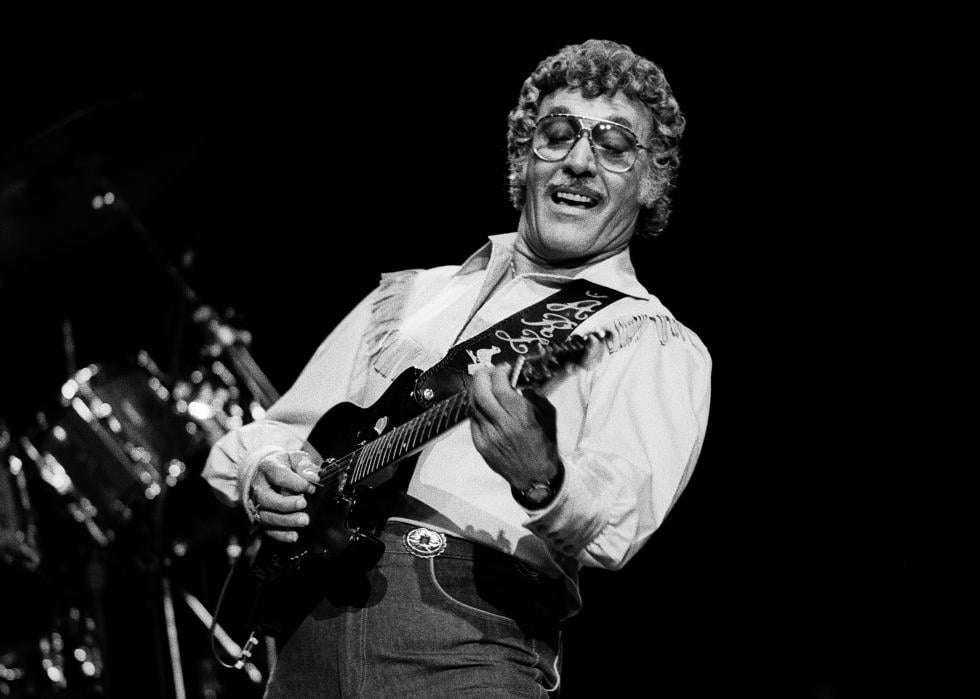
#20. Blue Suede Shoes
- Originally recorded by: Carl Perkins
- Written by: Carl Perkins
- Covers: 313
Few songs have tapped into the pulse of American pop culture quite like Carl Perkins' "Blue Suede Shoes," the first song to ever reach the top—or close to the top—of all three pop, country, and R&B charts of the time.
While Perkins never enjoyed the same kind of success again, the song has taken on a life of its own, reanimated throughout the years by a smorgasbord of legendary covers, including Elvis' up-tempo take and Johnny Rivers' rendition, which briefly returned the song to the charts in 1973.
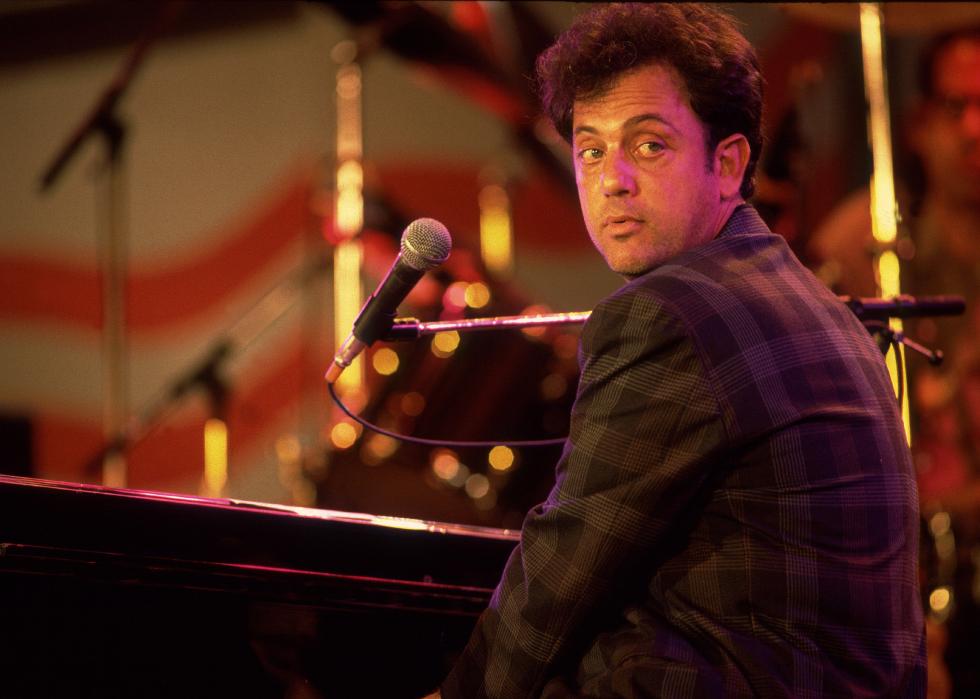
#19. Just the Way You Are
- Originally recorded by: Billy Joel
- Written by: Billy Joel
- Covers: 316
- Adaptations: 11
The standout track from Billy Joel's fifth album, "Just The Way You Are," quickly became one of the songwriter's signature songs when it released in 1977. Legend has it that Joel dreamed the melody. At a business meeting weeks later, Joel's mind drifted off from numbers and legal speak and returned to the dream, which then inspired the lyrics in a two- or three-hour sitting.
Barry White then leapt to cover the song a mere year later, an impulse some may have questioned at the time had it not earned him huge commercial success. White's R&B cover would become his second-longest-running hit in the U.K.
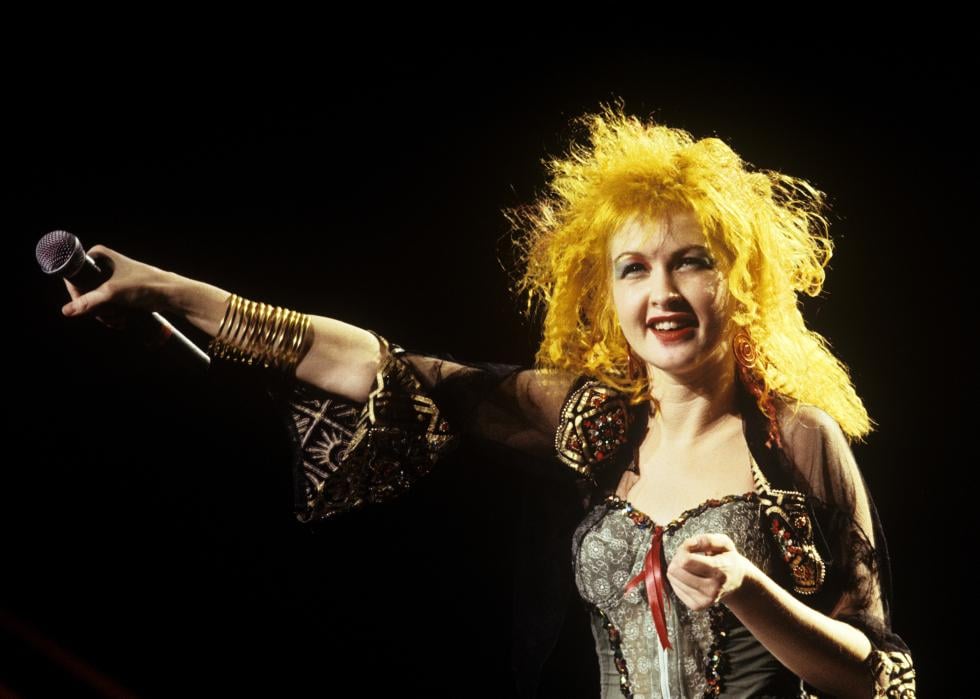
#18. Time After Time
- Originally recorded by: Cyndi Lauper
- Written by: Cyndi Lauper, Rob Hyman
- Covers: 317
- Adaptations: 10
Cyndi Lauper's romantic ballad "Time After Time," a song that now sounds like the ultimate emblem of the '80s, earned the singer her first #1 hit in 1984. With its tender yet complex emotional palette, the song caused musicians from all walks of life to cover it. Pop stars, including Pink and Leona Lewis, have offered their relatively faithful interpretations, but Lauper's favorite has always been Miles Davis'.
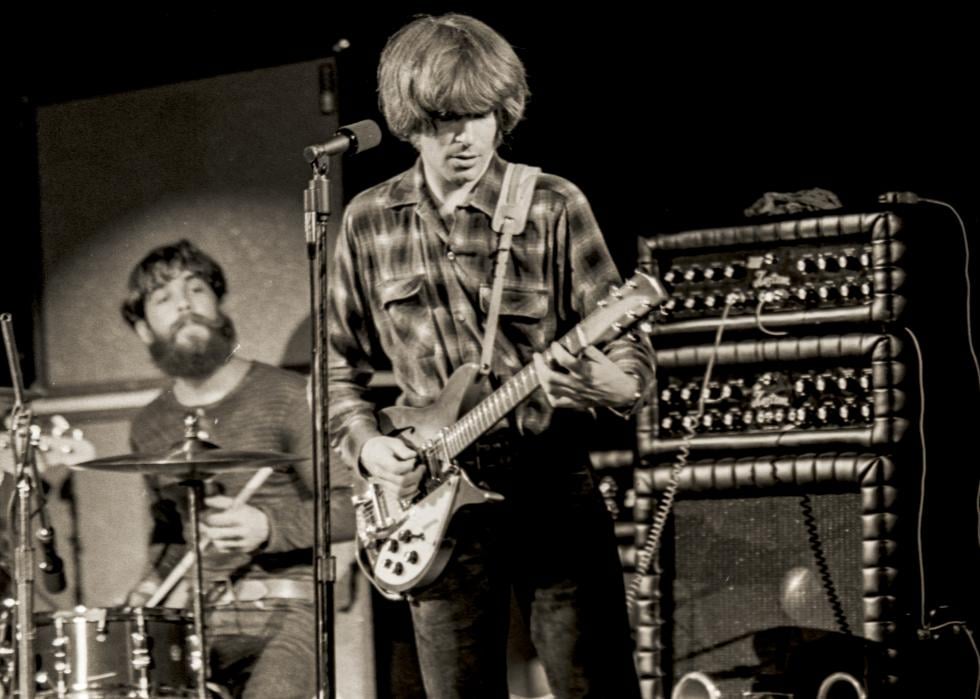
#17. Proud Mary
- Originally recorded by: Creedence Clearwater Revival
- Written by: John Fogerty
- Covers: 337
- Adaptations: 31
"Proud Mary" was Creedence Clearwater Revival at their swamp rock peak. The song was written by frontman John Fogerty, marking one of his first masterpieces, and later became a huge hit in 1969.
With its irresistible singalong quality, it's no wonder it began attracting covers almost immediately after its release. Solomon Burke came up with his version first before Ike & Tina Turner offered their interpretation in 1970, which hit the heights of the charts and became one of the most famous renditions of the iconic song.
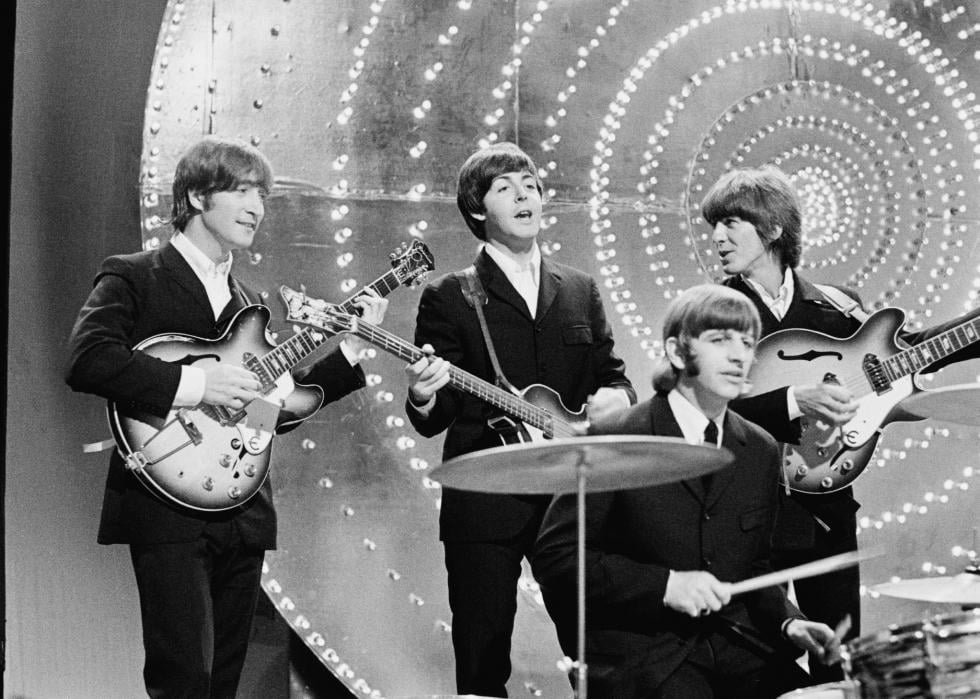
#16. Can't Buy Me Love
- Originally recorded by: The Beatles
- Written by: John Lennon, Paul McCartney
- Covers: 347
- Adaptations: 14
The Beatles' sixth single, "Can't Buy Me Love," was the product of a 19-day residency at Paris' Olympia Theatre. It introduced a slightly newer, bluesier tone to the boys' sound and was the first of the band's singles to feature only one singer. In this case, Paul McCartney was in the driver's seat.
The song's bluesy mood caught the ear of Ella Fitzgerald, who later covered the song and earned the band's approval.
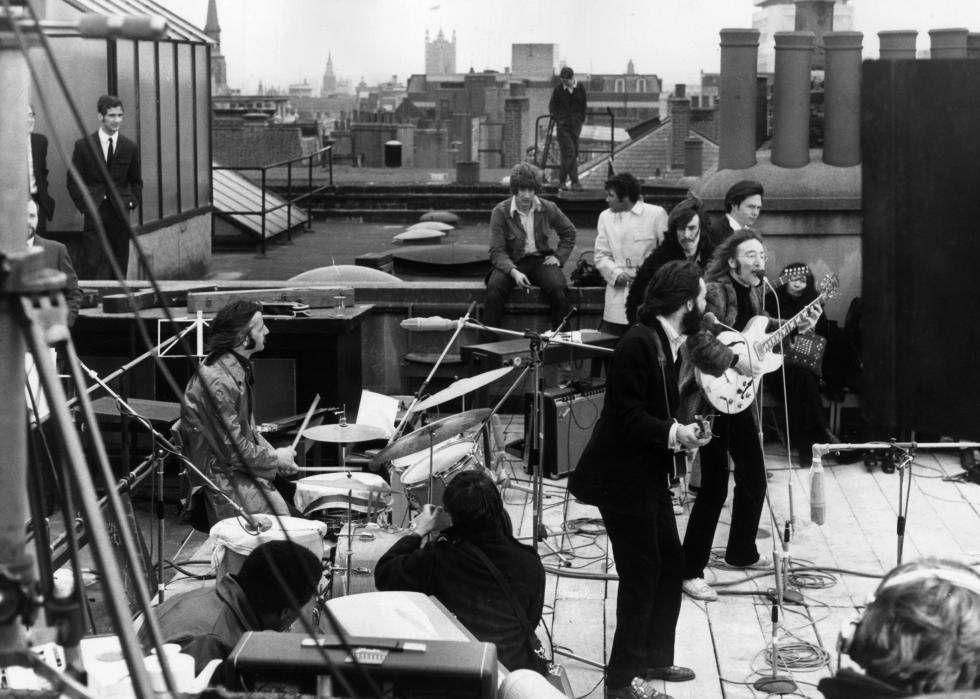
#15. The Long and Winding Road
- Originally recorded by: The Beatles, Bud Shank with The Bob Alcivar Singers
- Written by: John Lennon, Paul McCartney
- Covers: 352
- Adaptations: 6
There may not be a song in the Beatles' catalog that sums up their final bittersweet days better than "The Long and Winding Road." Primarily written in Scotland in 1968 by Paul McCartney, the mournful song ultimately provided a soundtrack to the cracks beginning to show within the band.
The song became the band's final #1 hit, but its beautiful melancholy lived on through renditions performed by Cher, Aretha Franklin, and Ray Charles.
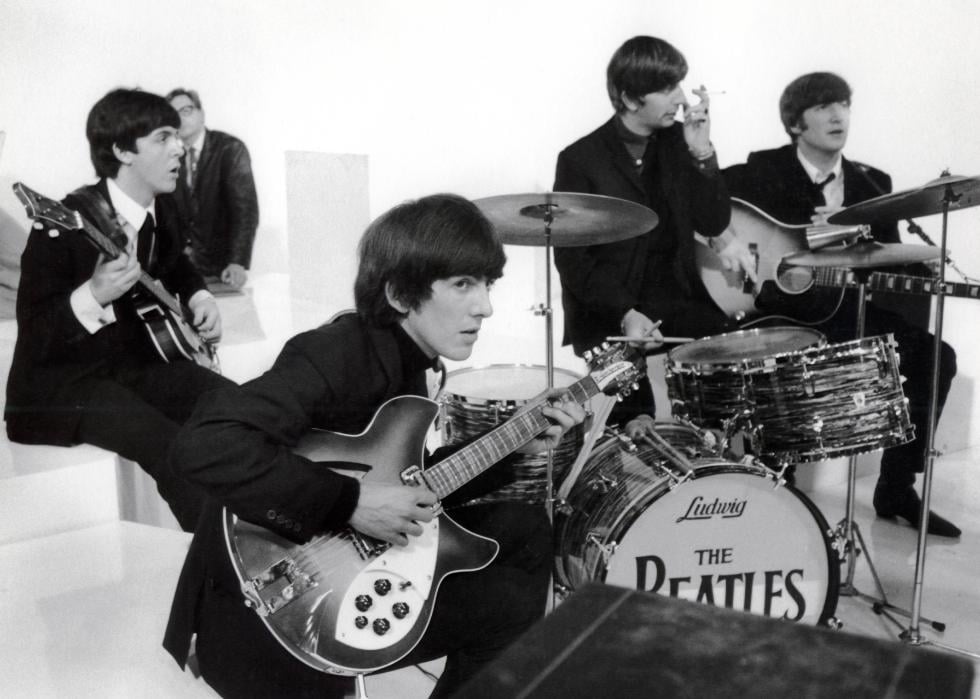
#14. A Hard Day's Night
- Originally recorded by: The Beatles
- Written by: John Lennon, Paul McCartney
- Covers: 354
- Adaptations: 19
"A Hard Day's Night" was inspired by a phrase uttered by Ringo Starr on one grueling, work-intensive night while the band was forced into a filming session in 1964. At that point, the Beatles hardly knew a life outside of touring and recording.
It's a lifestyle Otis Redding was all too familiar with. His cover of the song was just as rousing as the original, its sense of fun masking the exhaustion that inspired it.
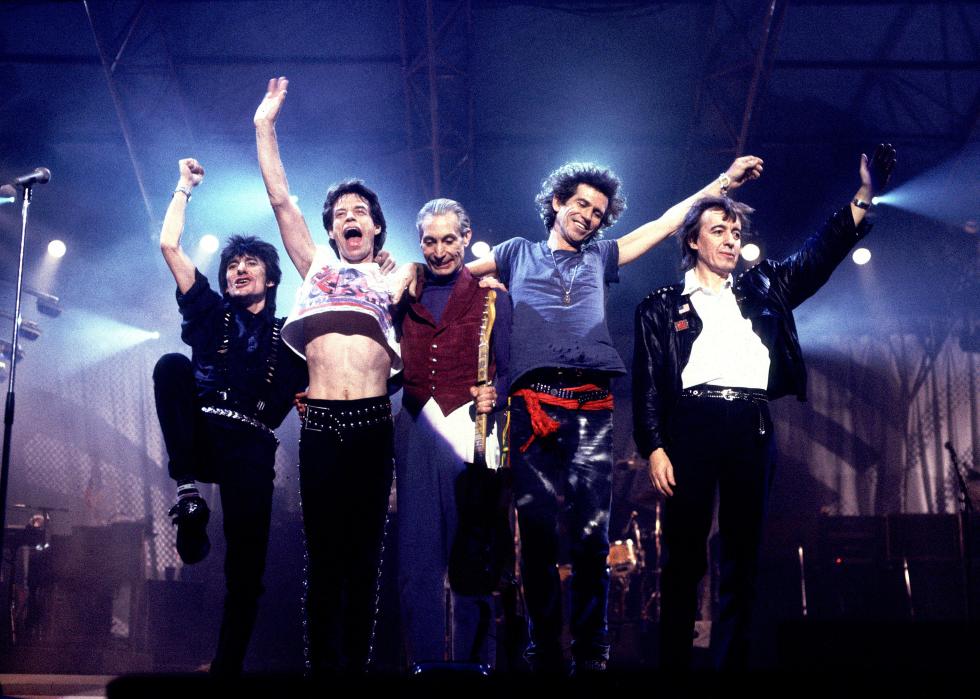
#13. (I Can't Get No) Satisfaction
- Originally recorded by: The Rolling Stones
- Written by: Mick Jagger, Keith Richards
- Covers: 357
- Adaptations: 14
With its spiky guitar riff and themes of disillusionment and rebellion, the Rolling Stones' "(I Can't Get No) Satisfaction" is what many would consider the prototypical rock song. Keith Richards, the band's guitarist, has long claimed that the now instantly recognizable riff came to him while he was sleeping.
It may be one of the most fortuitous dreams in rock history; "(I Can't Get No) Satisfaction" soon became the band's first #1 single in the U.S. Björk and PJ Harvey covered it together a few decades later, with a stripped-back yet venomous reinterpretation.
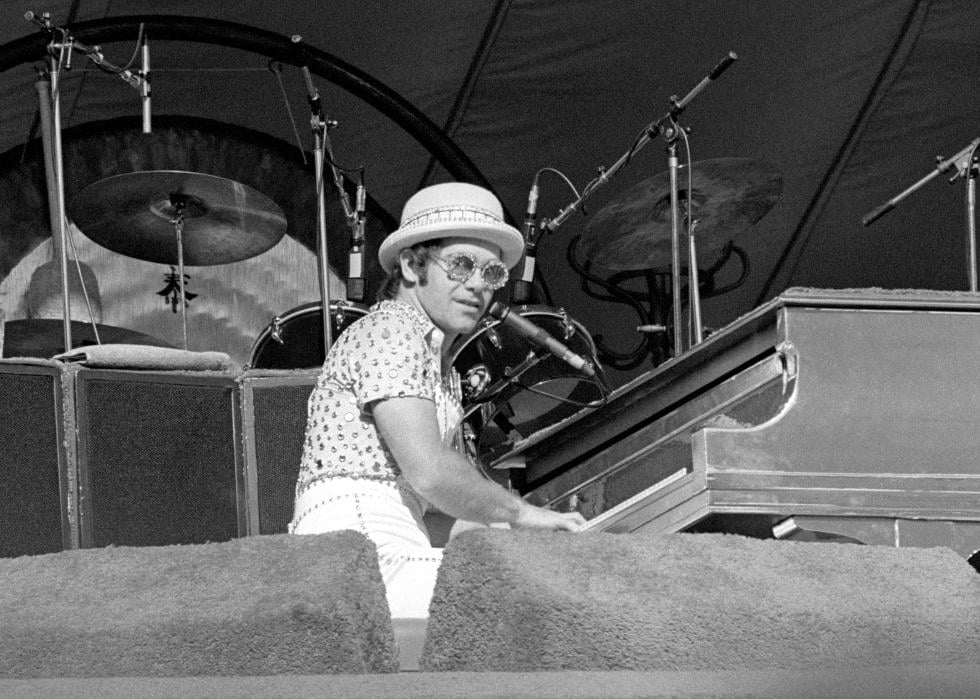
#12. Your Song
- Originally recorded by: Elton John, Three Dog Night
- Written by: Elton John, Bernie Taupin
- Covers: 363
- Adaptations: 14
"Your Song" was not only one of Elton John's first major hits but also the song responsible for launching him from a great songwriter into a worldwide phenomenon. Written alongside Bernie Taupin, the song was penned while Taupin was only 17. At that point, Taupin had yet to experience true love—the song's subject matter—for himself. You'd never be able to tell.
Rod Stewart covered it later, backed by fiddle and guitar, and Ellie Goulding turned it into an ethereal and lovelorn ballad many years later.
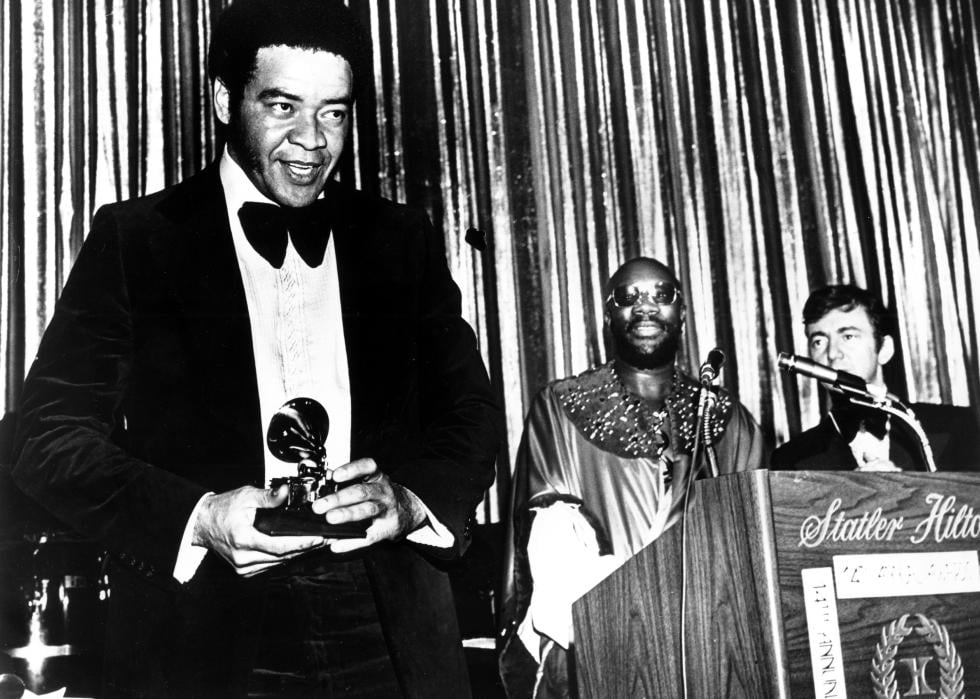
#11. Ain't No Sunshine
- Originally recorded by: Bill Withers
- Written by: Bill Withers
- Covers: 376
- Adaptations: 11
Not long before he wrote one of the best songs of all time, Bill Withers was still a factory worker, making aircraft toilet seats at a manufacturing plant in Los Angeles. It wasn't until he turned 32 that he made his breakthrough as a musician, a move he can credit to one perfect song: "Ain't No Sunshine."
The song moved a young Michael Jackson to cover it as a young teen. It's since gone through several different arrangements, with the likes of Tom Jones and Paul McCartney adding their twists on the classic.
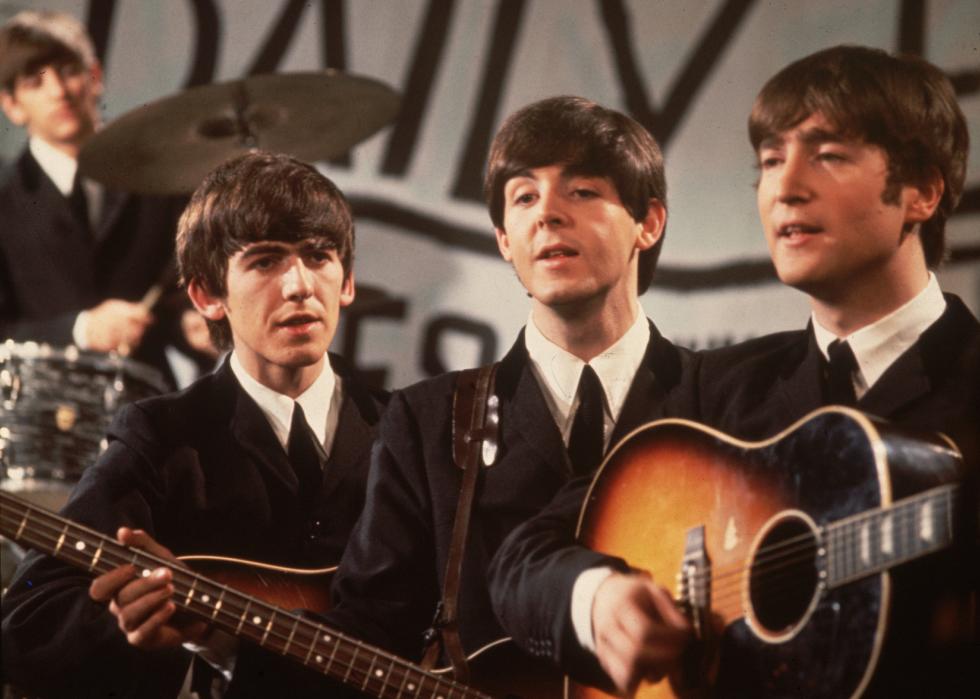
#10. With a Little Help from My Friends
- Originally recorded by: The Beatles
- Written by: John Lennon, Paul McCartney
- Covers: 397
- Adaptations: 15
One of the most famous call-and-response songs of all time, "With a Little Help from My Friends" was written collaboratively between John Lennon and Paul McCartney during the final stages of "Sgt. Pepper's Lonely Hearts Club Band." That opening lyric ("What would you think if I sang out of tune?") was a joke the songwriters played on the comparatively pitchy Ringo Starr, who performed the song.
"With a Little Help from My Friends" was most famously covered by Joe Cocker, whose version almost threatened to overshadow the original in the U.K., though it only reached #68 in the U.S.
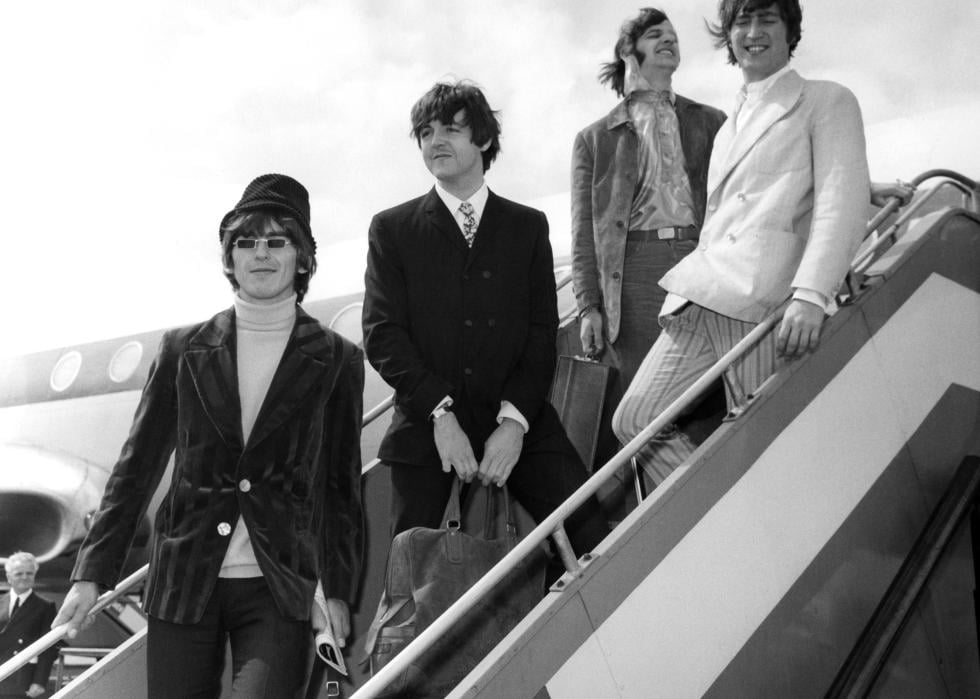
#9. In My Life
- Originally recorded by: The Beatles
- Written by: John Lennon, Paul McCartney
- Covers: 419
- Adaptations: 6
A fan favorite from "Rubber Soul," "In My Life" is a quintessential John Lennon track. The song was originally inspired by Lennon's memories of living in Liverpool, but its lyrics are deliberately vague enough for anyone to apply their own nostalgia to it.
The song has since found its way to some unlikely places; Sean Connery sang the song as part of an albumlong Beatles tribute, as assembled by George Martin in 1998.
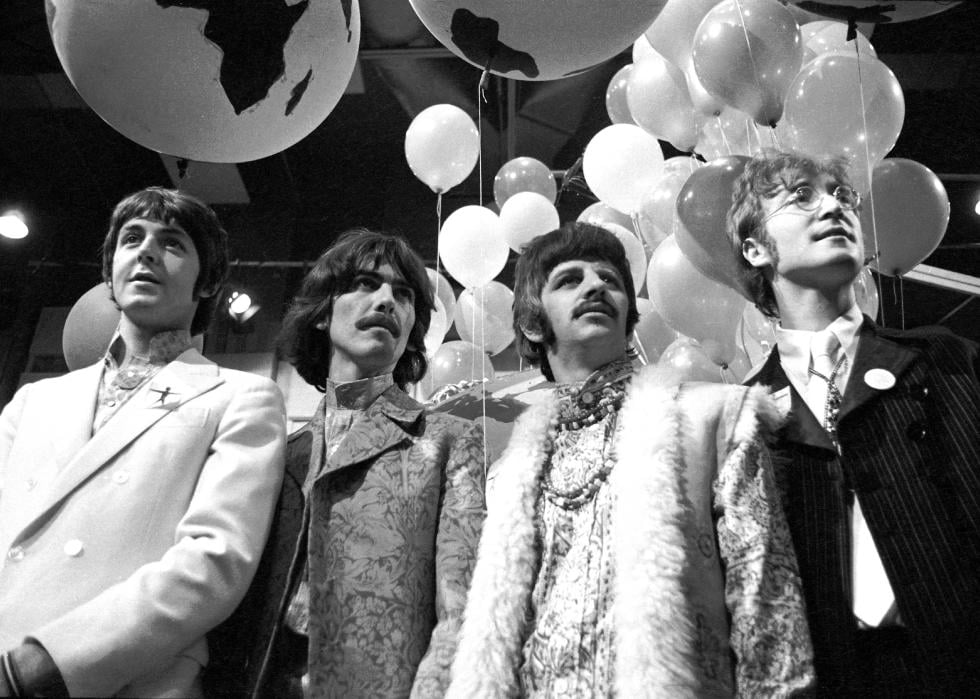
#8. Here Comes the Sun
- Originally recorded by: The Beatles
- Written by: George Harrison
- Covers: 430
- Adaptations: 9
The sunshine of the band's "Abbey Road" sessions, George Harrison's "Here Comes the Sun" proved that the third Beatle could stand toe to toe with Paul McCartney and John Lennon. Harrison penned the song while staying with his friend Eric Clapton at his home in Ewhurst, Surrey.
While sunning himself in Clapton's garden, the seeds of the song began to germinate, and the rest was history. A simple ditty, it'd be challenging to do a disservice to this lovely song. It's since been covered by Coldplay, Bon Jovi, and Travis, but Charles Wright of the Watts 103rd Street Rhythm Band infused it with a particularly lovely warmth and glow.
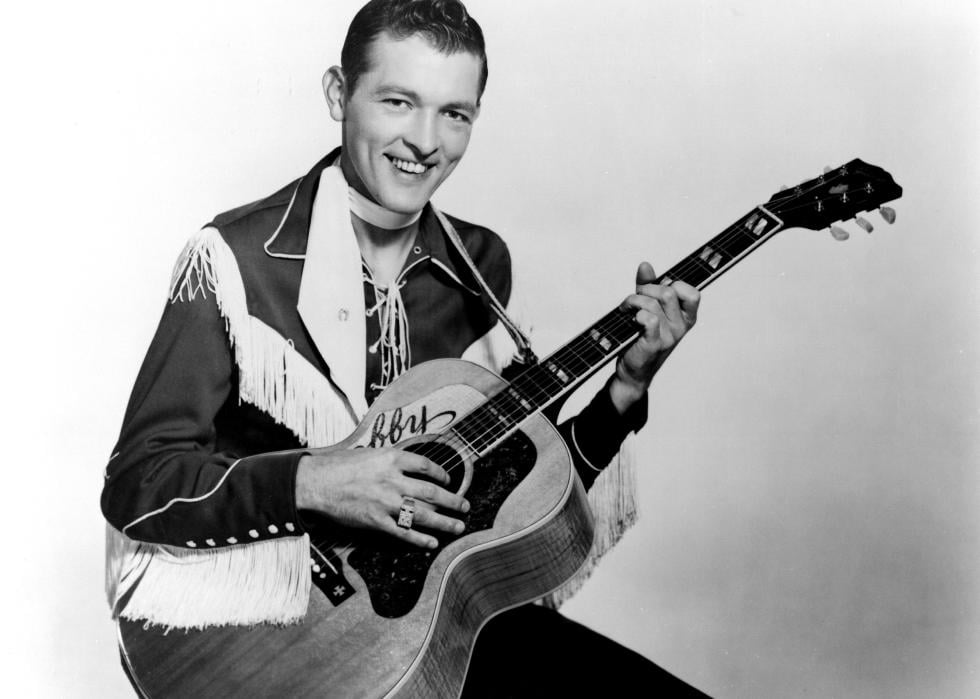
#7. Jingle Bell Rock
- Originally recorded by: Bobby Helms
- Written by: Jim Boothe, Joe Beal
- Covers: 447
- Adaptations: 10
"Jingle Bell Rock" was originally written by two unlikely sources, an advertising executive named James Ross Boothe and a public relations professional named Joseph Carleton Beal.
The popularity of "Jingle Bell Rock" has been forever enshrined, partly due to its many appearances in popular films like "Mean Girls" and "Lethal Weapon" but also due to its many covers throughout the years. Kylie Minogue, the Beach Boys, and Hall & Oates have all brought the holiday spirit of "Jingle Bell Rock" into their own repertoires.
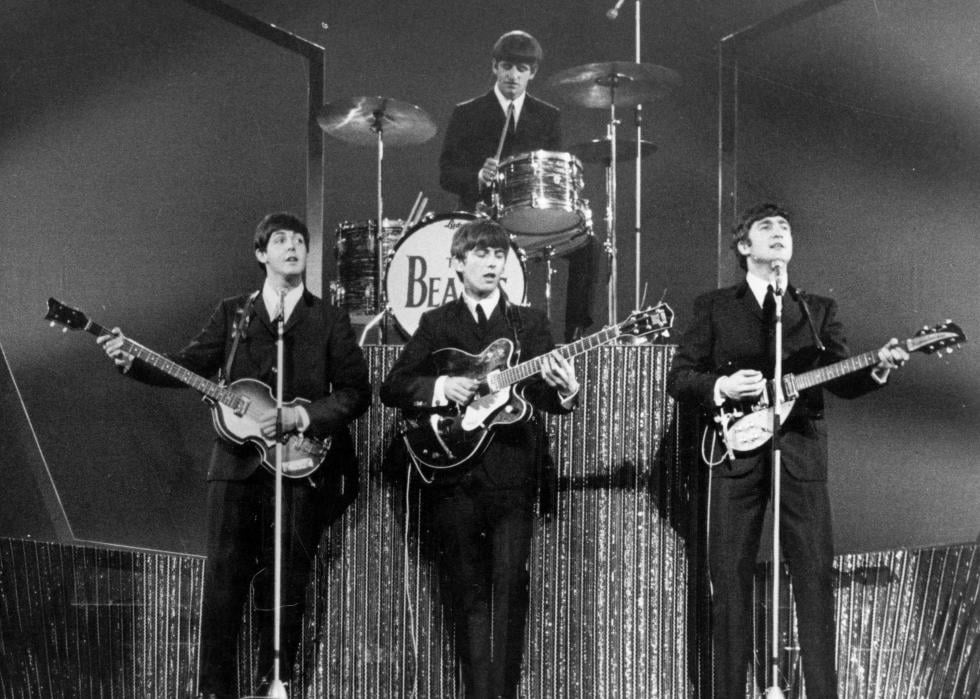
#6. Come Together
- Originally recorded by: The Beatles
- Written by: John Lennon, Paul McCartney
- Covers: 461
- Adaptations: 8
When the Beatles' discography was finally added to streaming services in 2015, "Come Together" was one of the songs that racked up the most streams, behind "Here Comes the Sun." It's not hard to see why.
There's an indelible oddness to the track that gives it a hypnotic quality while still making it sound fresh all these years later. In 1969, Tina Turner was among the first to cover it, infusing the song with a feminine yearning. A decade later, Aerosmith reached the charts with their extra groovy version.
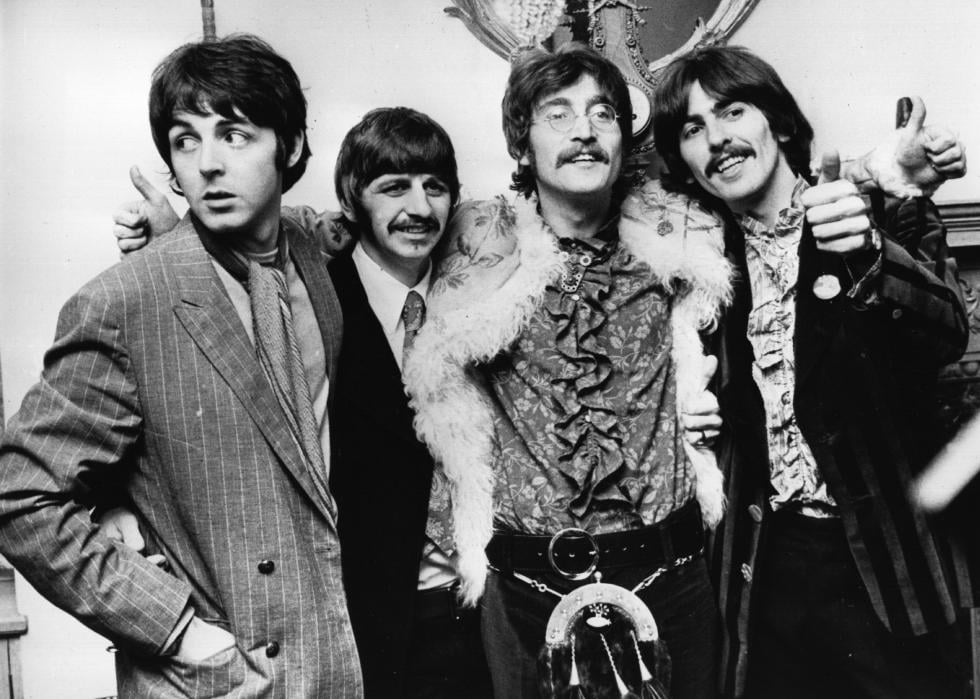
#5. Here, There and Everywhere
- Originally recorded by: The Beatles
- Written by: John Lennon, Paul McCartney
- Covers: 562
- Adaptations: 15
Paul McCartney has often referred to "Here, There and Everywhere" as one of John Lennon's favorites among McCartney's compositions on a tape. The song was allegedly written while he lounged by Lennon's swimming pool in Weybridge and waited for his collaborator to wake up.
David Gilmour of Pink Floyd gave us one of the best cover versions of the song, adding psychedelic flourishes to an interpretation that was otherwise faithful to McCartney's original composition.
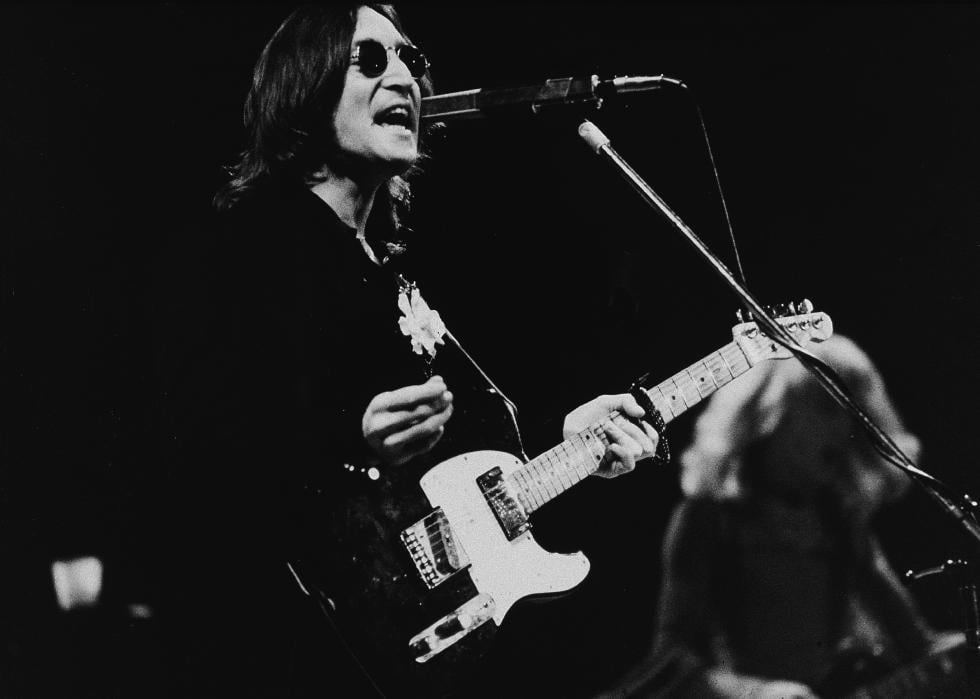
#4. Imagine
- Originally recorded by: John Lennon
- Written by: John Lennon
- Covers: 565
- Adaptations: 14
John Lennon wrote "Imagine," his magnum opus, hardly even a year after the Beatles split. It was 1971, and Paul McCartney had just filed a lawsuit to dissolve the pair's contractual partnership. Lennon ultimately ensured his freedom and independence with "Imagine," a song bound to survive as long as cockroaches and Twinkies.
There have been many excellent covers throughout the years, among the best include Joan Baez's 1972 version, which pared the song down to its most skeletal, and Neil Young's 2001 rendition for a 9/11 tribute, which featured a moving string section.
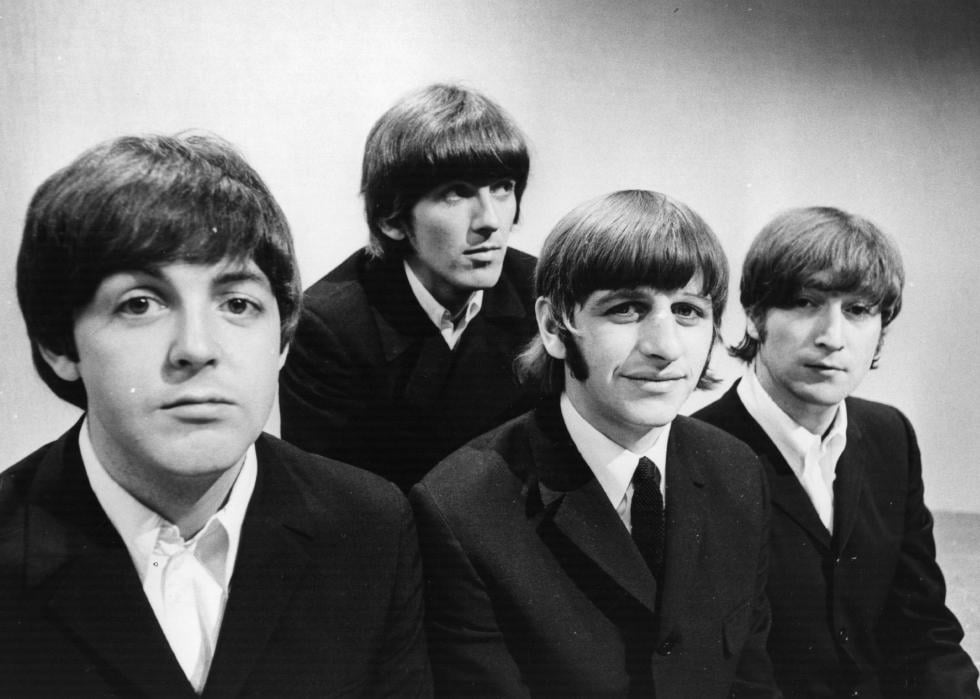
#3. Something
- Originally recorded by: The Beatles
- Written by: George Harrison
- Covers: 567
- Adaptations: 9
Once the band's underdog, George Harrison had established himself as a force to be reckoned with by the time "Something" was released in 1969.
One of the most memorable tracks from "Abbey Road," "Something" has inspired countless versions, some of which earned Harrison's approval—others… not so much. "At the time, I wasn't particularly thrilled that Frank Sinatra did 'Something'," Harrison admitted in his biography "Anthology," per Far Out Magazine.
However, he was much more pleased "when Smokey Robinson did it and when James Brown did it," he wrote, adding: "I'm very pleased now, whoever's done it. I realise that the sign of a good song is when it has lots of cover versions."
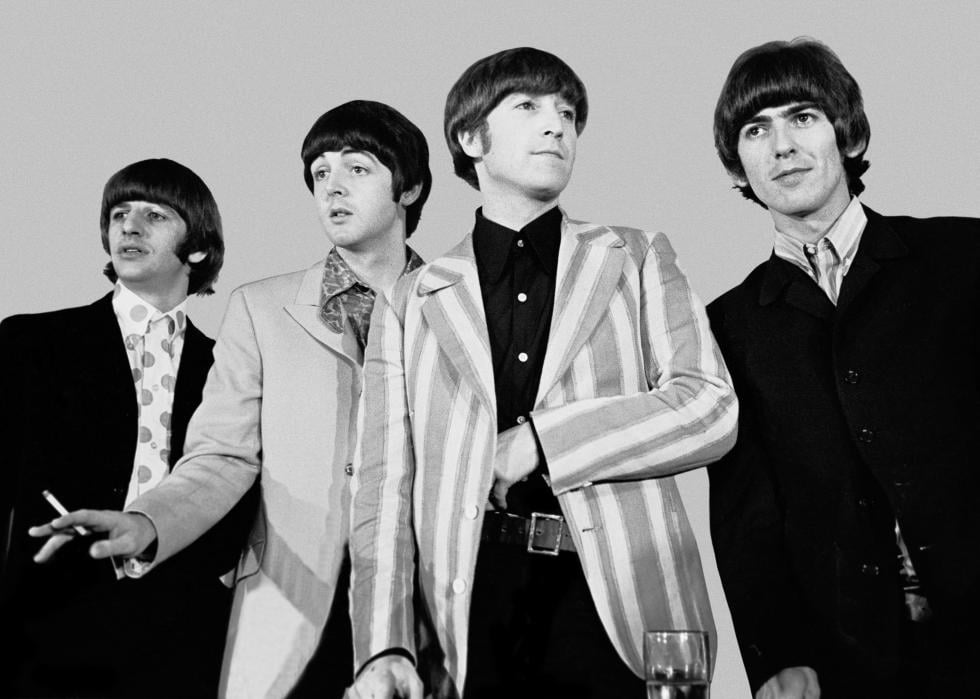
#2. Hey Jude
- Originally recorded by: The Beatles
- Written by: John Lennon, Paul McCartney
- Covers: 568
- Adaptations: 23
The Beatles released "Hey Jude" on the same day in 1968 as the Democratic National Convention opened. At seven minutes and 11 seconds long, the song challenged the constraints of radio broadcasting, though it became a megahit nonetheless.
Throughout the decades, "Hey Jude" has brought joy and unity to the world with its sweet message of camaraderie. Essentially a perfect song, covering it was no easy feat, but Wilson Pickett knocked it out of the park with his 1969 offering. "To this day, I've never heard better rock guitar playing on an R&B record," Eric Clapton said of Pickett's version.
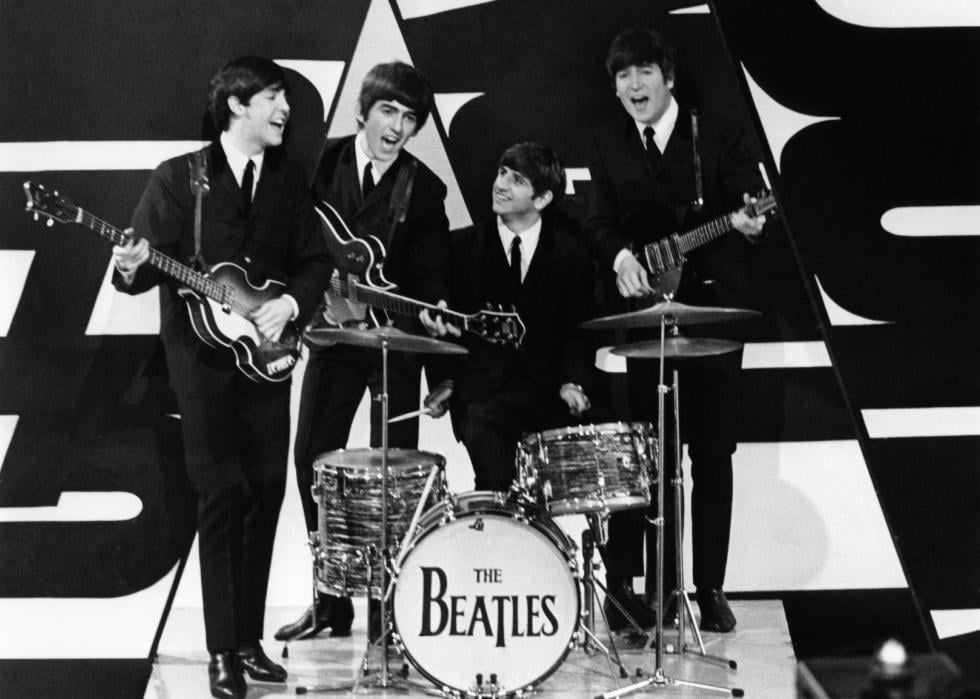
#1. Let It Be
- Originally recorded by: The Beatles, Aretha Franklin
- Written by: John Lennon, Paul McCartney
- Covers: 577
- Adaptations: 16
The most covered rock song of all time, "Let It Be," was recorded in 1969 (and courted to Aretha Franklin by Paul McCartney). While it's undoubtedly one of the Beatles' most beloved songs, John Lennon allegedly wasn't so hot on it.
At the time, the band was treading rocky ground, constantly arguing and trying to resolve seemingly irreconcilable creative differences. But despite the bad blood that underscored the making of this classic, "Let It Be" ultimately resounds as a song of love and unity, a timeless expression of brotherhood and beauty.
No cover quite lives up to the original, but the "Glee" cast certainly made a good attempt, as did the spookmaster Nick Cave.
Data reporting by Luke Hicks. Story editing by Carren Jao. Copy editing by Paris Close. Photo selection by Clarese Moller.



